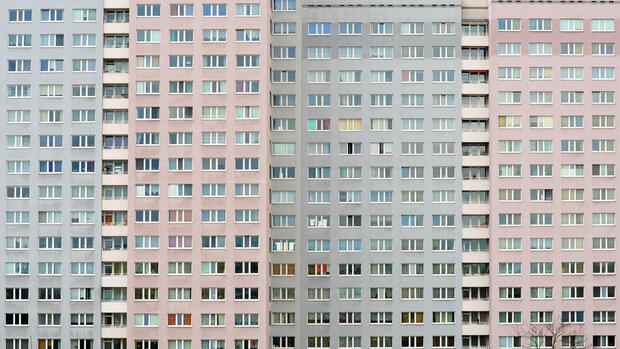Low earners in particular should benefit from the housing benefit reform during the energy crisis.
(Photo: dpa)
Berlin Federal Building Minister Klara Geywitz (SPD) has launched the bill on the housing benefit reform. In the future, far more people than before are to be protected from financial overload when it comes to housing. “A total of around two million households will benefit from the improvement in housing benefit in 2023,” says the draft law, which is available to the Handelsblatt. “These include around 1.42 million households that are entitled to housing benefit for the first time or again as a result of the housing benefit improvement,” it continues.
In addition, the housing benefit for the previous beneficiaries will increase by an average of around 190 euros per month. On average for all previous housing benefit households, the housing benefit increases from around 180 euros per month to around 370 euros per month.
The federal government had agreed on the reform at the beginning of September with the planned third relief package. It is intended to cushion the high energy costs for those on low incomes. In the future, people who earn the minimum wage or have a pension of a comparable amount should also receive housing benefit. In addition, there should also be a heating cost subsidy, which will later be permanently integrated into the housing benefit.
The housing cost burden at the income limits of the housing benefit is “currently significant and in 2020, despite housing benefit, amounted to more than 50 percent of the disposable income,” says the draft law. There is therefore an urgent need for action.
Top jobs of the day
Find the best jobs now and
be notified by email.
The draft law is to be passed by the Federal Cabinet next week. This is followed by parliamentary deliberations. The law should then take effect from January.
States require full funding from the federal government
In view of the price increases for electricity and gas, the federal states welcomed the increase in housing allowances. “The federal states will make their contribution,” it said on Friday after two-day deliberations at the Conference of Building Ministers (BMK) in Stuttgart.
Creating the budgetary conditions for this will pose major challenges for the federal states, it said. In view of the planned massive expansion of the group of recipients, they called for “effective simplifications of the procedure” so that the citizens could also be relieved in a timely manner.
According to state information, the planned reform will permanently lead to additional costs of four billion euros. So far, the federal and state governments have shared the costs. However, the states are striving for the federal government to assume the costs in full. “The complete assumption of the costs of the housing allowance by the federal government would be system-compliant and should be strived for,” says a statement by the BMK.
>> Read also: relief package – How the middle class and recipients benefit from Hartz IV
The German Association of Towns and Municipalities welcomed the reform and the payment of a further heating cost subsidy. “In view of the ever-increasing housing and energy costs, the intended change in the law is urgently needed,” it said. Expanding the group of recipients to around two million households will make an important contribution to relieving the burden.
However, implementation by January 1, 2023 is problematic. “The large increase in the number of cases means immense additional work for the municipal housing benefit offices.” The lack of staff in the housing benefit offices cannot be increased in the short term, and digital solutions are not yet available across the board.
More: Increasing Housing Market Troubles – “Toxic Mixture”
